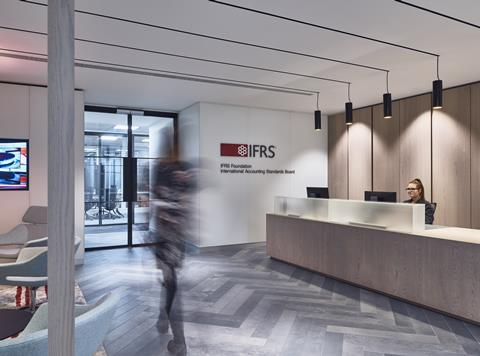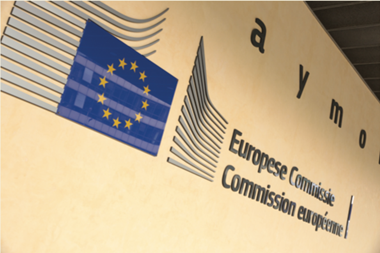The International Financial Reporting Standards Foundation has received broad support from investors, major pension schemes and sustainability rulemakers for its approach to materiality in non-financial reporting.
The comments come in response to the Foundation’s September 2020 consultation document setting out proposals to create a sustainability standards board (SSB).
The Sustainability Accounting Standards Board said: “As the consultation paper points out, the trustees considered a more broadly defined perspective on materiality that would include an organization’s significant impacts on the economy, environment, and people.
“This broader perspective on materiality is called “double materiality” [and we] agree with the Foundation’s conclusion that addressing double materiality would substantially increase the complexity of the SSB’s task as well as the time involved.”
Asset manager Legal & General added: “It is important that collectively support and we work with the IFRS and SSB to develop an agreed definition of materiality, and a more harmonised global system through a single mandatory standard for sustainability disclosures.
“As a primary user of ESG information, the proposed approach of the SSB to focus on decision-useful, financially material non-financial information that supports comparable, consistent and verifiable disclosures is very welcome.”
At present, IFRSs focus on financial materiality and treat information as material if leaving out of an entity’s financial statements would influence investors’ decisions.
IAS 1, Presentation of Financial Statements, defines information as material “if omitting, misstating or obscuring it could reasonably be expected to influence decisions that the primary users of general-purpose financial statements make on the basis of those financial statements which provide financial information about a specific reporting entity.”
Although some stakeholders believe the Foundation should extend this entity-focused view of materiality to its work on sustainability reporting, others think it should go further and embrace the concept of double materiality.
This latter notion involves the reporting entity accounting for the impact of its activities on, for example, the wider environment to a wider range of stakeholders.
The double materiality principle can already be found in the European Union’s Non-financial Reporting Directive.
The directive treats financial materiality as information aimed primarily at investors, whereas the broader consideration of environmental and social materiality is aimed not only at investors but also at civil society, employees and consumers.

In order to tackle the issue of materiality, and in light of the scale of the effort, the IFRS Foundation has proposed a “gradualist” approach to tackling the challenge.
Under this approach, the proposed SSB would “initially focus its efforts on the sustainability information most relevant to investors and other market participants,” following the IASB’s existing work focus.
The board would then be in a position to assess how and when it wanted to broaden the scope of its work “to provide a more comprehensive assessment of the risks and opportunities for a reporting entity.”
The California Public Employees’ Retirement System, however, warned the Foundation that the effort would not be without its obstacles given that sustainability reporting engages a much wider audience than traditional financial reporting.
CalPers said: “It will involve addressing both quantitative and qualitative issues while recognizing that materiality varies according to the user of the information. For a company, materiality is already defined by regulation.
“For investors, materiality can be broader, not just due to their portfolio wide holdings, but because their size and liability structure can lead to exposure to systemic risks. These can include externalities which are costs borne by wider society, but which for universal owners like CalPERS can impact risk and return.”
The CFA Institute also signalled its support for the proposed approach to materiality. However, the Asset Management Group of the Securities Industry and Financial Markets Association urged trustees to “collaborate with SASB and other existing initiatives in sustainability reporting to ensure that the perspectives of investors are fully reflected in the standards.”
The IFRS Foundation trustees announced on 8 March they would release a feedback statement analysing the responses they have received to the consultation document.
IFRS Foundation trustees form sustainability reporting standards working group
The trustees of the IFRS Foundation have announced the formation of a working group as part of their work on global sustainability reporting standards.
They said the working group would provide a forum for structured engagement with initiatives focussed on enterprise value reporting, as previously described by the trustees.
Specifically, the working group would provide technical recommendations, including further development of the prototype built on the Task Force for Climate-related Financial Disclosures recommendations, “as a potential basis for the new board to build on existing initiatives and develop standards for climate-related reporting and other sustainability topics”.
“The group will also review how technical expertise and content might potentially be transitioned to the new board under the IFRS Foundation’s governance structure, with a view to facilitating consolidation and reducing fragmentation in sustainability reporting standards,” the trustees said.
Clara Barby will take partial leave from the Impact Management Project to be the project lead for the IFRS Foundation’s sustainability project, under the oversight and strategic direction of the IFRS Foundation’s steering committee of trustees.
The trustees said participants in the working group were “dedicated to reporting on enterprise value and bring together complementary international experience”.
They include the to-be-created Value Reporting Foundation, Climate Disclosure Standards Board, and the World Economic Forum. The trustees said the working group would “engage closely” with the Global Reporting Initiative and CDP.











